How did a warm and witty Jesuit priest from Malta end up as a roving world traveler and photographer?
The Mediterranean island of Malta is a place rich in religious folklore and history. Fr. Philip Chircop grew up in a small village there, with hard-working parents and five siblings. His mother, a nurse by profession, loved to sing in the parish choir, cooked delicious meals daily and was the anchor of the family. Spring through fall, she enjoyed frequent dips in the Mediterranean waters.
His father worked at the dockyard for many years, fashioning massive tents and covers for the warships of the British Navy that had a naval base on the Island. With marriage and a budding family, he changed jobs and worked as a civil servant for the Malta government. Philip’s father was an artist at heart, who led the parish choir and played the organ at the local parish church for many years. He also loves to guild, paint, compose music and write poems.
Young Philip, also an artist at heart, was often asked the question, “What do you want to be when you grow up?” He always gave the same answer: “An orchestra conductor, a clown and a pilot.” Priesthood was never really in the picture until one day towards the end of high school, when a priest from the same town asked him out of the blue, “Have you ever considered becoming a priest?” At the priest’s invitation, Philip attended a “Come and See” weekend at the seminary and, as he puts it, “that was it.”
In the middle of his nine years of study at the seminary, Philip and two fellow seminarians opted to travel to the U.S. to work in the sugarcane fields of Louisiana. It was during this time, at a retreat in a Benedictine monastery, that he started feeling the pull towards the Jesuit way of life. He fell in love with Ignatian spirituality, which springs from the experiences and insights of the founder of the Jesuit Order, St. Ignatius of Loyola. After his ordination in 1988, Philip joined the Jesuit novitiate in Malta. He later did his postgraduate studies on Spirituality and Mysticism in Paris, France.
Philip now lives and works in a Jesuit Community in downtown Toronto. However, he can truthfully say that “the road is my home”, as he travels around the world giving retreats and facilitating workshops on practical spirituality. He loves music, painting, sculpture and poetry, and is also an accomplished writer and photographer. His beautiful photos are often thought-provoking, and he himself shines with wisdom and exuberance.
We caught up with Fr. Philip Chircop at Calgary’s FCJ Retreat and Conference Centre, where he was giving a retreat called “Pilgrim Hearts: A Few Practices for the Inward Journey”.
Kolbe Times: You’ve been travelling widely and giving retreats in many countries for quite a few years now.
Philip Chircop: Yes, and each retreat in itself is very much like taking a journey, with a different group of people each time. Plus, meeting people from so many different cultures adds another layer of variety. I didn’t really plan to travel so much. All the travel started when a Trinidadian woman who was visiting her daughter – a student at Queens University in Kingston – attended a retreat I was giving at Manresa, the Jesuit Spirituality Centre in Pickering, Ontario. At the end of the retreat, she invited me to come to Trinidad to facilitate a retreat for her Anglican community. That was the first of many retreats outside of Canada.
Kolbe Times: It must be interesting to see how people from other cultures and countries have such different perspectives.
Philip Chircop: Yes, very much so. Last week I was in Singapore and Malaysia, giving retreats for a group of local Sisters. We had many interesting conversations about the challenges of working in a predominantly Muslim country like Malaysia. Sometimes there are challenges that you would never dream of, and you might not encounter if you are just passing through as a tourist.
I’ve discovered that once you start to get to know the retreatants, they go out of their way to show you the beauty and the uniqueness of their country. With each new exploration comes a stretching of the mind and the heart, making space for wider understanding and wilder imaginings twinned with necessary risk.
If you are my host, I know you are showing me something you think I will enjoy – even if it is something that I’m initially not so sure about! I love those kinds of risks – the surprise aspect of travelling. Plus it’s great to see the host being thrilled and excited that you are trying something new, like an exquisite dish they have prepared for your enjoyment, or celebrating mass barefoot, following the custom of the place. All this comes with a generous dose of laughter, and with laughter another stretch of the soul.
Kolbe Times: So you are a retreat leader, and also a student.
Philip Chircop: That’s really what makes the experience so beautiful. With every invitation to lead a retreat, I always feel that I have a learning opportunity in front of me. It all boils down to a festival of the senses – the sights, the fragrances, the new sounds. For instance in Malaysia, I remember vividly the texture and the sound of the adhan: the Islamic call to worship, sung by the muezzin at prescribed times of the day. So hauntingly beautiful…very enchanting!
Kolbe Times: To travel with a student’s perspective is a good word to all of us.
Philip Chircop: Yes, you don’t want to waste the opportunities to learn. You must travel wisely. As I see it, some people that I have travelled with in the past are not really travelling – they are just changing spaces. They eat at MacDonald’s, because that’s what they do at home. Eating at familiar fast food places when you travel tends to flatten everything. There is no cultural dimension, as you would find at a local restaurant, especially when a local friend takes you there. Then you know you are in for a new experience.
And it’s the same thing spiritually. If I’m taken to the local Hindu or Buddhist temple, I’m in for an experience. Your host wants you to see what they see – how they use incense and other rituals that are so colourful, and why they do it, and what they feel when they are there. That is something beautiful in Singapore and Malaysia. All the religions are mingled. In one street you will see many temples and places of worship. If you travel as a learner, then you will leave changed.
Kolbe Times: Talk a bit more about that – how do we cultivate that kind of attitude when we travel?
Philip Chircop: I would say go with a curious mind – with what the Buddhists’ call the beginner’s mind. Go as a pilgrim, not as a tourist. This has nothing to do with being spiritual. That comes later.
I often tell myself and those who journey together with me on a retreat, that during our seven days together they shouldn’t take photos. Instead, go out and walk contemplatively, and receive photos. You’ll know when you ought to click. You’ll recognize the gift when you see it – a particular angle, or a particular leaf, or a particular face. Tourists take photos; pilgrims receive them. It’s a very different dynamic. I’m normally not in “selfies”. It’s not my game. So you won’t see me in my photos, but you might see a sunrise that struck me in the morning, because that’s what was there for me to receive. And my photos end up being my prayer resource – which I often use in my retreats as well.
I try to travel with this distinction in mind: I can go through life as a tourist – nothing wrong with that, obviously – or I can go through life as a pilgrim. This distinction is bigger than a faith denomination. It’s a different posture of life, a different way of proceeding. If I had to distinguish, I would say a tourist normally is more obsessed with externals, even such things as clothing and make-up. Pilgrims don’t care much about how they look. In the tourist dynamic, there are still masks and make-up and pretensions. There’s a lot of tension and jealousy on the tour bus! But if you have a pilgrim’s perspective, these externals are the least important things because it’s all about the interior – the inner journey.
And you know, sometimes I travel as a tourist, too. I know that those tourist trips are more about entertainment and recreation, and that’s okay sometimes. Eight hotels in fourteen days – go, go, go. You need a rest when you get home! But as a pilgrim you have the time to slow down, and therefore go deeper. The pilgrim’s concern is about having a concentrated focus, which is the opposite of pushing yourself to have more and more experiences, which can end up being so superficial.
Kolbe Times: You once wrote that you are “in love with beauty”.
Philip Chircop: Yes, and I would take it even further, and say that I love to look for beauty even in things others might call ugly. There is a quote that struck me deeply by Antoine de Saint-Exupery in his famous book The Little Prince, “What is essential is invisible to the eye. It is only with the heart that one sees rightly.”
That quote has stayed with me, wherever I go. One of my prayers is to die as a seeker, with bottomless curiosity. If I look through that lens – to live my life as a learner – I’m convinced that all I will be able to see at the end of the day is beauty, even in what other people might call ugly, or nonsense, or crooked.
I often bring it back to “respect”, which is a beautiful word. To “re-spect” means to “look again”. If you respect the object given to you, and spend enough time with it, it will bring you to its visible or its inner beauty. Beauty is there because beauty and life breathe into one another. My starting point is – and this is very Jesuit, very Ignation – that God is in all things, and all things are in God. If you see this relational, sibling characteristic in all that is, it’s impossible not to return to the Source. And if you do come back to the Source of all, you cannot but see beauty.
If I see a beautiful face – a beautiful wrinkled face – to me the wrinkles don’t make it less beautiful. They add to the beauty; that’s my point. If you don’t agree, perhaps you need to look through a different lens. Those wrinkles tell a story. In Japan, craftsmen have long practiced the art of restoring a broken vase or bowl with gold. And so a broken object, lovingly mended, becomes even more precious. This is part of the Japanese philosophy of wabi-sabi, which means “to find beauty in the imperfect.”
Kolbe Times: Often your photography seems to point us to the beauty in the ordinary.
Philip Chircop: I take photos of the craziest of things – a door lock or a pair of flip-flops. I feel a pull that draws me to something, a call to my subconscious. Part of my pilgrim practice when I’m leading a retreat is take time to enjoy the still of the morning before the others wake up. Many things fall into place between 5 and 6 a.m. in the morning, after that first cup of coffee. It’s a good time to encounter beauty, if you “see rightly”, to quote The Little Prince.
I also live by a quote from the Jesuit philosopher Teilhard de Chardin, “In virtue of creation, and still more, in virtue of the Incarnation – the Word becoming flesh – nothing here on earth is profane for those who have eyes to see.” If God is the creator of all that is, then everything is sacred. In some ways it’s only common sense!
Kolbe Times: As you travel the world and meet people from so many different cultures, are you struck by the things that people everywhere have in common?
Philip Chircop: Yes, and I am especially touched by this when I am in a place where I don’t speak the language. In one sense, knowing the language builds walls faster. In other words, if I hear you speak my language, then I’m going to build a beautiful safety net around us. All of a sudden I forget about everyone else. But if you don’t speak the language, then the ocean of possibilities is all around you, with everybody. You have to revert to another way of expressing yourself – sometimes it’s a smile, or laughter, or a respectful gesture acknowledging that we are both human beings. For example, imagine that you stop at a fruit stall to buy something, and you don’t speak the same language as the farmers, and they don’t know yours. But there is a lot of laughter as you try to communicate. Maybe I’m not sure if they gave me the right change because I’m not familiar with the currency, but who cares! We are put in a position where we must notice each other, and learn from each other. It can be very delightful. But if you are not in the right state of mind, you might find it very frustrating.
Kolbe Times: I love that. Instead of seeing our inability to speak the native language as a huge obstacle that makes travel very difficult, it’s possible to see it as an opportunity to communicate on a different level… perhaps a deeper level. Maybe it opens a door that leads you to connect through the heart, instead of through language.
Philip Chircop: Exactly. And I’m learning that I must approach my ministry in a wakeful state, on a creative level of consciousness. I’m learning that if I travel without pre-judgments or pre-conditions, and allow myself to take surprises as a potential new word from God to me, then yes, it brings me from my head to my heart. If I approach my travels with only my mind, then I will miss a lot and sometimes make stupid mistakes. If I travel through the heart, I will touch the Creator, and without fail I will end up in a bigger heart – the Sacred Heart or the Cosmic Heart. The barriers from thinking too much bring paralysis and fear, which stop you from what the heart is trying to bless you with.
The exercise of humility, of giving pride a break, happens when you are not in control as usual. When you have to ask for help, this kicks your ego out of the way. A tourist often brings his or her own country with them, which gives them a sense of familiarity and control. But a pilgrim travels as a guest. And that attitude gives you the right posture to take risks and interact with others even if they don’t speak your language or look like you. That’s when you come to understand that actually we are all travelling in the same boat and the same ocean. When you touch the humanity in the other, you will see how much we all have in common
Another way of putting it is that when I travel like a tourist, I go through places – and often at such a fast speed that I am not much changed by the experience. But as a pilgrim traveller, I allow the places I visit to go through me. In the process, I am changed to another level of consciousness – another level of seeing.
Kolbe Times: Do some places have the ability to transform us more than others?
Philip Chircop: We don’t have to go to the Holy Land to experience transformation. I think every piece of land is holy. People go to Lourdes to get holy water. To me, every drop of water is holy water. If you don’t believe that the water in your own tap is holy, just imagine a day without it. Isn’t water, by nature, holy?
Kolbe Times: This is really about the way we travel through our lives every day.
Philip Chircop: Yes! The whole dynamic of what we have been speaking about is how each and every day is a pilgrimage. You can spend a day as a tourist – very busy, you never touch the ground and everything becomes a blur. Or you can live those 24 hours as a pilgrimage, intentionally, with awareness, and slowed down as much as possible. This is why as Jesuits, we end every day with the Examen of Consciousness: a simple exercise of scanning the day backwards, looking for hints of the divine. A fellow Jesuit calls this exercise “rummaging for God”.
The poet Walt Whitman, the poet says, “The sidewalks are littered with postcards from God.” And Elizabeth Browning writes:
Earth is crammed with heaven,
And every common bush afire with God;
But only those who see take off their shoes,
The rest sit round and pluck blackberries.
Kolbe Times: Thank you! It’s been a lovely journey just talking with you today.
Philip Chircop: It’s been very delightful for me, as well.
Visit Fr. Philip at www.philipchircop.com
Photos by Philip Chircop


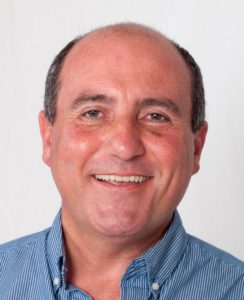
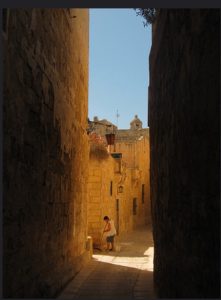
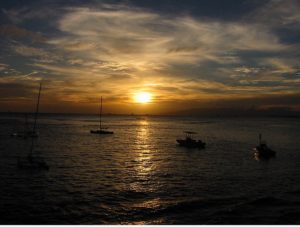
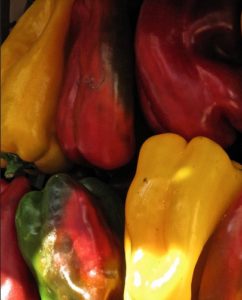

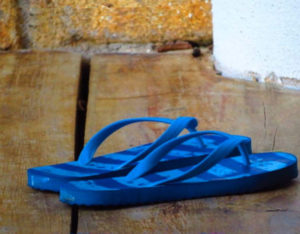
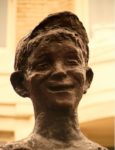
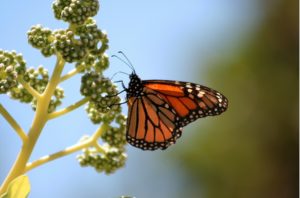
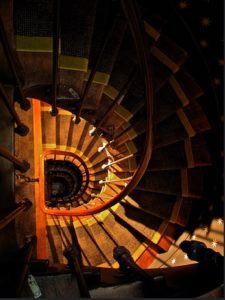
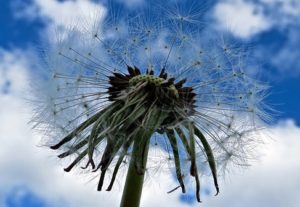






As always I find your words inspiring . Every day is blessing if we truly open our eyes and heart. Continue your beautiful work and keep smiling. You are in my thoughts and prayers .
Fr. Philip you were one of my friends on Facebook.
I lost you as a friend! Could you add me on please!
I am on retreat but find so much inspiration in your photos and posts. I remember vividly the retreat I made with you in Newfoundland.
Hi Fr.Philip,
My name is Kasileta (Kassie)
We have met at Paris at the home of Petite Soeur de Pauvre.
You are always on my mind and also praying for you every day.
I left France on 1986 and I live in New. Zealand.
God bless you.
Remember me in your prayers please Father.
Hello Fr. Philip! I miss you coming to Houston. I know it’s not possible since the Cenacle buildings are no more. Just sad! I’m wondering where you are and how you are doing. I miss terribly your talks and insights! I often wish I had recorded them all! So much good inspiration in your talks. I hope you are well and that I hear from you. If you are ever in Houston again for any reason, I would love to take you out for a Texas meal! I will be on the Island of O’ahu all of June this year, so if you happen to be traveling there, please let me know. Also, when you will be doing retreats in San Antonio or Austin, please let me know. If I can, I will attend! Well, this is too much information but I know you care. May God be with you as you journey and experience life. With love & gratitude, Madeline